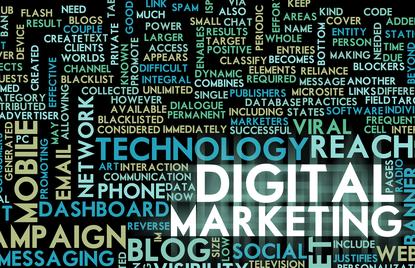What the hell is the difference between ad tech and marketing tech?
- 08 February, 2016 23:53

What is advertising technology? What is marketing tech? Do the terms overlap, and why should ad or marketing professionals care?
"Ad tech and marketing tech are like peanut butter and chocolate," says Jake Sorofman, research vice president at Gartner. "Ad tech targets anonymous audiences, while marketing tech generally targets known customers."
If only it were all that simple. The fact is all of the minute differences between ad tech and marketing tech aren't as important as what the technologies actually do. However, endless confusion on the topic exists in the tech and media markets. And while the definitions of the two terms aren't always clear-cut, some important divisions exist.
In an effort to chop through the mental fog that sometimes surrounds ad and marketing tech, we asked industry analysts, marketers and vendors for their takes on the differences between the two technologies.
What is marketing technology?
The tools that manage marketing processes, workflows, digital content and customer analytics are all part of the marketing technology ecosystem, according to Carl Doty, vice president and group director at Forrester Research.
Adam Kleinberg, CEO of advertising agency Traction, describes marketing tech as advanced CRM. Marketing tech targets existing customers and prospects that marketers already have on the hook, he says. "Sometimes you know who they are and sometimes they are just someone you've 'cookied,' but you have them in a database, you have a record of some degree of past behavior, and you can provide them with customized communications based on that."
Marketing tech covers all aspects of marketing, including CRM platforms, creative, design, SEO and even ad tech, according to Mike Rosner, chief revenue officer at Forensiq, an ad fraud detection and protection company. "Marketing tech is basically the creative, understanding the customer and [the] data science around optimization," he says.
What is advertising technology?
Technologies that enable the programmatic buying and selling of advertisements are commonly referred to as ad tech, according to Doty. The ad tech umbrella covers the vast databases of digital identities called demand-side platforms, and data management platforms, or the ad networks and exchanges that publishers use to sell their digital ad space, he says.
Ad tech lets organizations hone their focus on specific groups or individuals, according to Kleinberg. "If buying TV was like a nuclear bomb and buying websites was like a shotgun, then using ad tech is supposed to be like having a sniper rifle," Kleinberg says. "There are a lot of problems with the scope on that sniper rifle, but that's the general idea."
The full foundation of ad tech is somewhat shaky considering the problems it can cause, Kleinberg says, who likens the tech to robots buying media. "Robots run on software. Software runs on logic. Logic has rules, and rules are made to be broken. This is why there is so much waste and fraud in the space."
The irony, of course, is that ad tech can potentially eliminate huge amounts of wasted ad spending, particularly with direct-response marketing, according to Kleinberg.
Combined 'marketing and ad stack' confounds confusion
Large marketing cloud vendors such as Adobe and Oracle acquired ad tech companies and integrated the features into their own products to build a "full marketing and advertising stack," a trend that's expected to continue, Doty says. "What's happening in the market now is a consolidation across these categories."
For this reason, ad tech and marketing tech are in some ways one and the same. They share commonalities, and much of the confusion over the difference relates to the fact that advertising is the most visible form of marketing, according to Vish Sastry Rachakonda, CEO of digital marketing firm iQuanti.
"[Ad tech and marketing tech] are both broadly based terms used to describe an assortment of technologies and data sources" and "they are both fundamentally aimed at reaching the right audience with the right message at the right time and place," Kleinberg says.
The overlap occurs in the use of customer, or potential-customer, data for single interactions versus long-term strategy, according to Rosner. The struggle over ownership of that data, and how it should be used, is largely responsible for the confusion that hangs over ad tech and marketing tech, he says. "If data equals power, who owns it amongst the key stakeholders: CTOs, CIOs, CMOs?"
As long as this question remains unanswered, the overall value and effectiveness of both ad and marketing tech will remain at issue.

